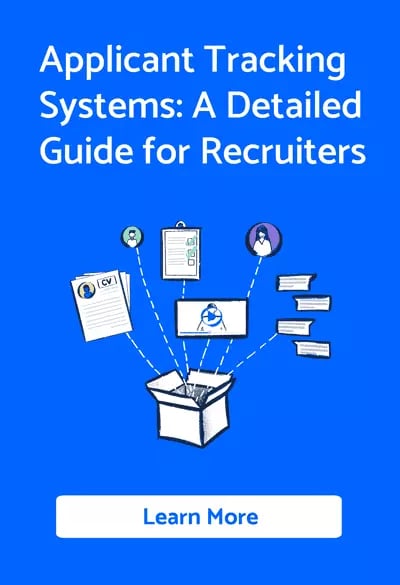Hiring new employees is a critical aspect of business growth and success. In the UK, the recruitment landscape is rapidly evolving, making it increasingly challenging for business leaders to navigate attracting, selecting, and retaining top talent.
According to the Office for National Statistics, the UK employment rate was 75.1% in the three months leading up to October 2021, highlighting the competitive nature of the job market.
This comprehensive guide will explore 21 top tips for hiring new employees in the UK, backed by data and metrics, to help business leaders make informed decisions and build a strong workforce.
1. Define the job role and responsibilities
Before beginning the recruitment process, it is essential to define the job role and responsibilities clearly. This will help you attract the right candidates and align expectations.
Create a detailed job description outlining the key responsibilities, skills, and qualifications required for the role. Ensure that this information is communicated clearly and consistently across all recruitment channels.
2. Develop a strong employer brand
A strong employer brand is essential for attracting top talent in today's competitive job market. Focus on developing an employer brand that reflects your company's values, culture, and benefits.
Promote your employer brand through various channels like social media, job boards, and your company website. Share employee success stories and testimonials to showcase the benefits of working for your organisation.
3. Use multiple recruitment channels
To reach a diverse pool of candidates, utilise multiple recruitment channels, such as job boards, social media, and recruitment agencies.
This will maximise your chances of finding the right candidates for your open positions.
Monitor the performance of each recruitment channel and adjust your strategy accordingly to ensure that you are targeting the most effective platforms.
4. Leverage employee referrals
Employee referrals can be a valuable source of high-quality candidates. Encourage your employees to refer their contacts for open positions and offer incentives, such as referral bonuses, to motivate them.
Ensure your referral process is clear and straightforward, making it easy for employees to participate.
5. Emphasise company culture and values
When hiring new employees, it is crucial to emphasise your company’s culture and values. This will help you attract candidates who are a good fit for your organisation and improve employee retention.
Include information about your company culture and values in your job advertisements, and discuss these aspects during the interview process.
6. Conduct thorough interviews
The interview process is critical in evaluating candidates and ensuring they fit your organisation well.
Develop a structured interview process that includes behavioural, situational, and skills-based questions.
Consider incorporating panel interviews, practical exercises, or assessment centres to comprehensively understand each candidate's abilities and potential fit.
7. Utilise skills assessments
Skills assessments can be an effective tool for evaluating candidates' abilities and ensuring that they possess the necessary skills for the role.
Incorporate relevant skills assessments, such as aptitude tests, technical tests, or practical exercises, into your recruitment process.
Ensure that the assessments are tailored to the specific requirements of the role and provide a clear indication of each candidate's capabilities.
8. Value cultural fit
When hiring new employees, it is essential to consider cultural fit alongside skills and experience. Candidates who align with your company culture and values are more likely to be successful and stay with your organisation long-term.
During the interview process, assess candidates' alignment with your company’s culture and values through targeted questions and discussions.
9. Check references
Reference checks are essential in the recruitment process, providing valuable insights into a candidate's previous performance, work habits, and interpersonal skills.
Always contact referees provided by the candidate and ask specific questions about the candidate's abilities and fit for the role. Consider using structured reference check templates to ensure consistency and thoroughness in your evaluations.
10. Offer competitive compensation packages
To attract and retain top talent, it is crucial to offer competitive compensation packages. Research industry benchmarks and competitor offerings to ensure that your compensation packages align with market expectations.
Include a combination of base salary, bonuses, and benefits, such as pension contributions, private health insurance, and flexible working options, to create an attractive package for potential employees.
Data from the Annual Survey of Hours and Earnings (ASHE) conducted by the Office for National Statistics can provide valuable insights into industry-specific salary benchmarks.
11. Streamline the recruitment process
A lengthy or cumbersome recruitment process can deter top talent from applying for positions within your organisation. Automate your recruitment process to make it more efficient and candidate-friendly.
Implement applicant tracking systems (ATS) to manage and organise your recruitment efforts, and ensure that your communication with candidates is prompt and transparent.
12. Foster a diverse and inclusive workforce
A diverse and inclusive workforce has been proven to drive innovation and improve overall business performance. According to McKinsey's 'Diversity Wins' report, companies in the top quartile for gender diversity on executive teams were 25% more likely to have above-average profitability than those in the bottom quartile.
Develop and implement diversity and inclusion initiatives, such as targeted recruitment campaigns and unconscious bias training, to ensure your organisation attracts diverse candidates and fosters an inclusive work environment.
13. Prioritise employee retention
Hiring new employees is a costly and time-consuming process. You can reduce turnover and maintain a stable and skilled workforce by prioritising employee retention.
Implement career development programmes, regular performance reviews, and employee recognition schemes to ensure your employees feel valued and engaged.
14. Provide comprehensive onboarding and training
A comprehensive onboarding and training programme is essential for setting new employees up for success.
Ensure that your onboarding process includes a thorough introduction to your company, its values, and the expectations of the role.
Provide ongoing training and development opportunities to help your employees grow and succeed within your organisation.
15. Leverage recruitment technology
Recruitment technology, such as applicant tracking systems (ATS) and artificial intelligence (AI) tools, can streamline your recruitment process and improve the quality of candidates you attract.
Invest in recruitment technology that aligns with your organisation's needs and objectives to maximise the effectiveness of your hiring efforts.
16. Optimise job advertisements
Well-crafted job advertisements can significantly impact the quality and quantity of candidates you attract. Ensure your job advertisements are clear, concise, and tailored to your target audience.
Include relevant keywords, a clear job title, and a detailed description of the role, responsibilities, and required skills to help your job advertisements rank higher in search results and appeal to suitable candidates.
17. Utilise video interviews
Video interviews can be a valuable tool in the recruitment process, particularly when hiring remote or international candidates. They can save time and resources while still providing valuable insights into a candidate's fit for the role.
Incorporate video interviews into your recruitment process, either as a primary screening tool or as part of the main interview process.
18. Collaborate with educational institutions
Partnering with educational institutions, such as universities and vocational schools, can help you access a pipeline of fresh talent and build relationships with potential future employees.
Establish collaborations with relevant educational job boards and participate in events such as career fairs and guest lectures to increase your organisation's visibility and reputation among potential candidates.
19. Encourage internal mobility
Promoting internal mobility can improve employee retention and help you fill open positions with experienced and skilled employees who are already familiar with your organisation.
Implement initiatives such as internal job postings and career development programmes to encourage employees to explore new opportunities within your organisation.
20. Monitor and measure recruitment metrics
Tracking and analysing recruitment metrics is crucial for understanding the effectiveness of your hiring process and making data-driven decisions.
Monitor key metrics such as time-to-fill, cost-per-hire, and candidate experience to identify areas for improvement and optimise your recruitment efforts.
21. Seek expert advice
Working with recruitment professionals or consultancies can provide valuable insights and expertise to help you navigate the challenges of hiring new employees.
Consider partnering with a recruitment agency or engaging an HR consultant to support your hiring efforts and ensure the best possible outcomes.
Wrapping up
Hiring new employees in the UK can be complex and challenging for business leaders. However, by implementing these 21 top tips, organisations can improve their recruitment efforts, attract top talent, and build a strong workforce.
From defining job roles and responsibilities to fostering diversity and leveraging technology, each aspect of the recruitment process plays a crucial role in ensuring success.
Business leaders can create a robust hiring strategy that drives growth and success by prioritising the candidate experience, developing a strong employer brand, and utilising data and metrics to inform decision-making.






